For decades, Brussels sprouts carried a bad reputation in American kitchens — boiled, mushy, and bitter. But thanks to modern cooking trends, these tiny green gems have made a massive comeback. From upscale bistros to home-cooked holiday feasts, Brussels sprouts are now celebrated for their rich flavor, versatility, and impressive nutrition.
Today, they’re roasted with balsamic glaze, tossed with bacon and parmesan, or shredded into vibrant salads. In short, America has fallen back in love with Brussels sprouts — and for good reason.
Let’s explore what makes this cruciferous vegetable a modern superfood and how you can cook it in creative, flavorful ways.
What Are Brussels Sprouts?
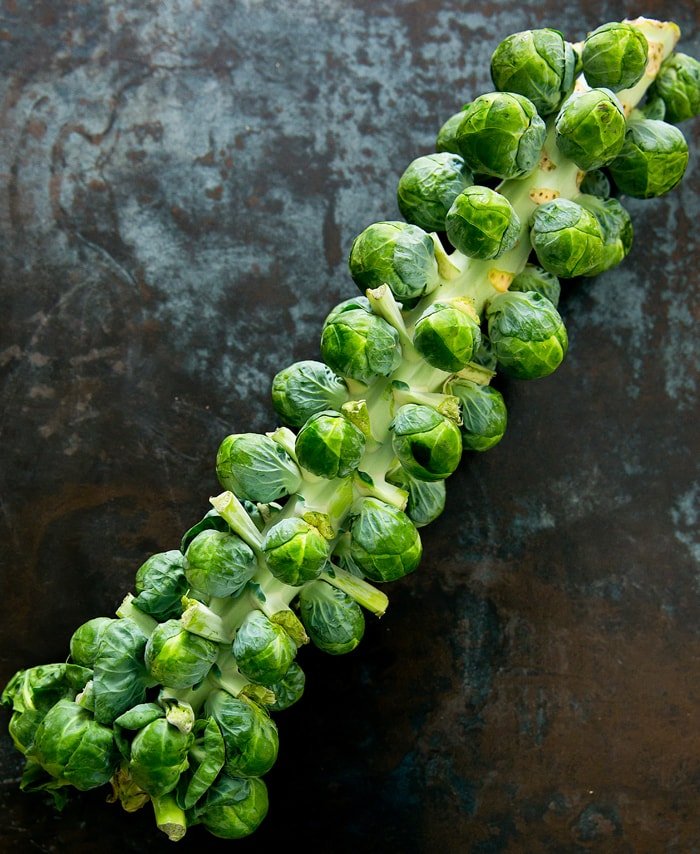
Brussels sprouts (Brassica oleracea var. gemmifera) belong to the cruciferous vegetable family, which also includes broccoli, cauliflower, kale, and cabbage. They grow on thick stalks, with miniature cabbage-like buds that form along the stem.
Originating in Brussels, Belgium, they’ve been cultivated since the 13th century and became popular in the U.S. in the 1800s, particularly in California, where most of America’s Brussels sprouts are still grown today.
These tiny green vegetables are now a farmers’ market favorite, especially during the fall and winter months when they’re at their sweetest and most flavorful.
Nutritional Powerhouse: Why Brussels Sprouts Are a True Superfood
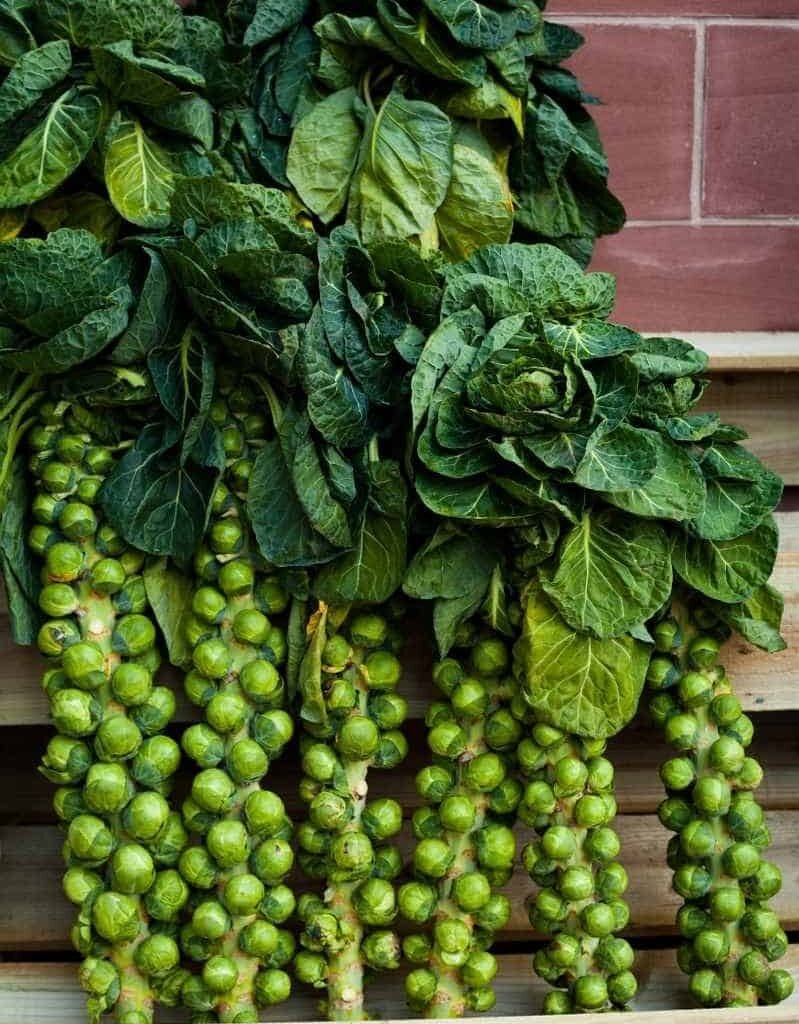
Brussels sprouts might be small, but their nutritional value is enormous. They’re loaded with essential vitamins, minerals, fiber, and antioxidants that support overall health.
Here’s what one cup (88 grams) of cooked Brussels sprouts provides:
- Calories: 56
- Protein: 4g
- Fiber: 4g
- Vitamin C: 124% of the Daily Value (DV)
- Vitamin K: 150% of the DV
- Folate: 15% of the DV
- Manganese: 15% of the DV
- Iron and Potassium: Moderate amounts
That’s not all — Brussels sprouts also contain sulforaphane, a plant compound that helps fight inflammation and may protect against cancer.
Top Health Benefits of Brussels Sprouts
Brussels sprouts are much more than a trendy side dish — they’re a science-backed health booster. Here’s why you should add them to your weekly menu:
1. Strengthen the Immune System
Packed with vitamin C, Brussels sprouts help your body fight off colds and infections. Just one serving provides more than your daily requirement of this essential immune-boosting nutrient.
2. Support Bone Health
Vitamin K plays a crucial role in bone strength and calcium absorption, and Brussels sprouts are one of the richest plant sources available. Eating them regularly can help prevent bone loss and osteoporosis.
3. Improve Digestion
High in dietary fiber, Brussels sprouts promote healthy digestion and support gut health. Fiber feeds beneficial gut bacteria, helping balance your microbiome and improve nutrient absorption.
4. Help Manage Weight
Low in calories but high in fiber and nutrients, Brussels sprouts make a satisfying addition to meals. Their slow-digesting fiber helps you feel full longer, supporting healthy weight management.
5. Promote Heart Health
Brussels sprouts are loaded with antioxidants and compounds that reduce inflammation and support cardiovascular function. Studies suggest they can help lower LDL (“bad”) cholesterol levels.
6. Support Detoxification
Cruciferous vegetables like Brussels sprouts help activate detoxifying enzymes in the liver, flushing out harmful toxins and promoting clearer skin and better metabolism.
7. May Help Reduce Cancer Risk
Sulforaphane, a powerful compound found in Brussels sprouts, has been linked to reduced cancer cell growth and protection against DNA damage.
How to Cook Brussels Sprouts Perfectly (and Make Everyone Love Them)
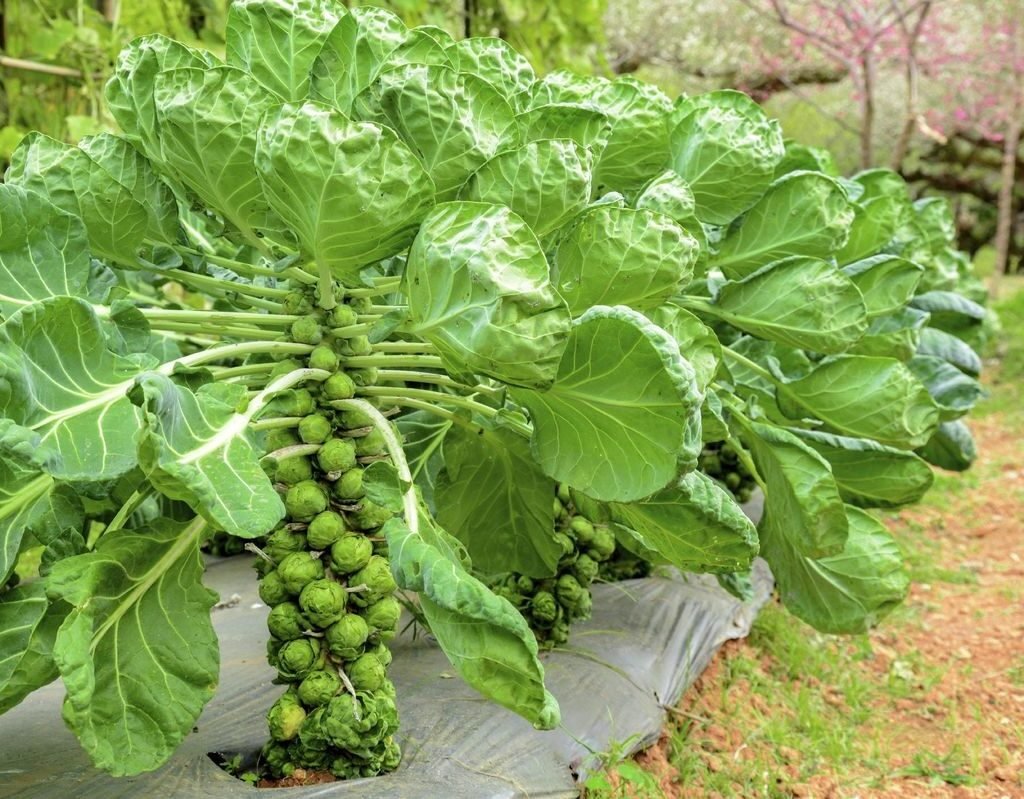
Gone are the days of boiled, bitter Brussels sprouts. The secret to making them delicious lies in high-heat cooking methods that bring out their natural sweetness and crisp texture.
Here are some American-favorite ways to prepare Brussels sprouts:
1. Roasted Brussels Sprouts
Toss halved Brussels sprouts with olive oil, salt, pepper, and a drizzle of maple syrup or balsamic vinegar. Roast at 425°F for 25–30 minutes until golden brown and caramelized. This method enhances their natural nuttiness and sweetness.
2. Sautéed Brussels Sprouts
Slice them thinly and sauté in olive oil with garlic, onions, and a squeeze of lemon. Add chopped bacon or pancetta for a savory twist that pairs beautifully with steak or roasted chicken.
3. Air-Fried Brussels Sprouts
Air-frying gives them a crispy exterior and tender inside — without excess oil. Toss with a touch of olive oil and sea salt, then air fry at 375°F for 12–15 minutes.
4. Shaved Brussels Sprout Salad
Use a mandoline or food processor to shred raw sprouts. Toss with cranberries, pecans, and a tangy honey-mustard dressing for a crunchy, nutrient-packed salad.
5. Grilled Brussels Sprouts
Skewer whole sprouts, brush with olive oil and spices, then grill for 5–7 minutes on each side. The smoky char gives them incredible flavor.
6. Brussels Sprouts with Balsamic Glaze
For a restaurant-worthy dish, roast your sprouts and drizzle them with a reduced balsamic glaze and a sprinkle of parmesan cheese — sweet, tangy, and savory all in one bite.
7. Brussels Sprouts Hash
Combine shredded Brussels sprouts with sweet potatoes, onions, and eggs for a hearty, healthy breakfast hash packed with vitamins and fiber.
Creative American-Style Brussels Sprouts Recipes
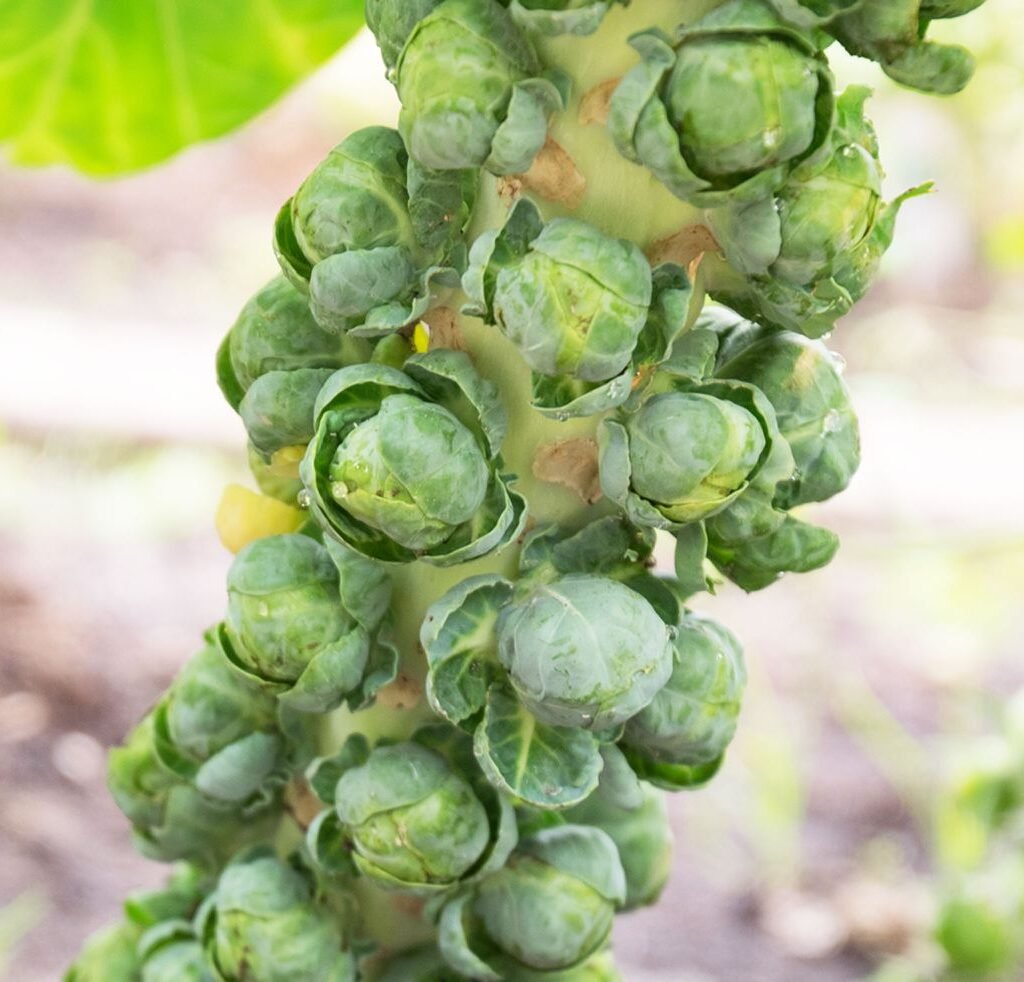
If you want to go beyond the basics, here are some fun and flavorful ideas:
- Buffalo Brussels Sprouts: Toss roasted sprouts in buffalo sauce for a spicy, game-day snack alternative to wings.
- Brussels Sprouts and Bacon Mac & Cheese: Stir in crispy sprouts for a smoky, veggie-packed comfort dish.
- Maple-Dijon Roasted Brussels Sprouts: The perfect blend of sweet and tangy for holiday dinners.
- Brussels Sprouts Tacos: Combine sautéed sprouts with avocado, lime crema, and black beans in soft tortillas.
- Crispy Brussels Sprout Chips: Peel off outer leaves, bake them until crispy, and enjoy as a low-calorie snack.
Buying and Storing Tips
To get the best flavor, choose bright green, firm Brussels sprouts with tightly packed leaves. Smaller sprouts tend to be sweeter and more tender, while larger ones have a bolder, nuttier flavor.
Storage Tips:
- Keep unwashed Brussels sprouts in a perforated bag in the refrigerator for up to 5 days.
- If they’re still on the stalk, leave them attached until ready to use — it helps preserve freshness.
- For long-term storage, blanch and freeze them for up to 6 months.
Brussels Sprouts in American Food Culture
Brussels sprouts have officially gone from “most hated vegetable” to culinary superstar. Their renaissance began in the early 2010s when chefs across the U.S. started roasting them with bold flavors — garlic, honey, bacon, and sriracha — transforming public opinion overnight.
Today, you’ll find them featured on menus everywhere:
- Gourmet restaurants serve roasted Brussels with parmesan and truffle oil.
- Food trucks toss them in spicy glazes.
- Home cooks experiment with vegan and keto-friendly versions.
This veggie’s versatility makes it a perfect fit for America’s modern healthy lifestyle — simple, flavorful, and endlessly customizable.
Fun Fact: The Science Behind Better-Tasting Brussels Sprouts
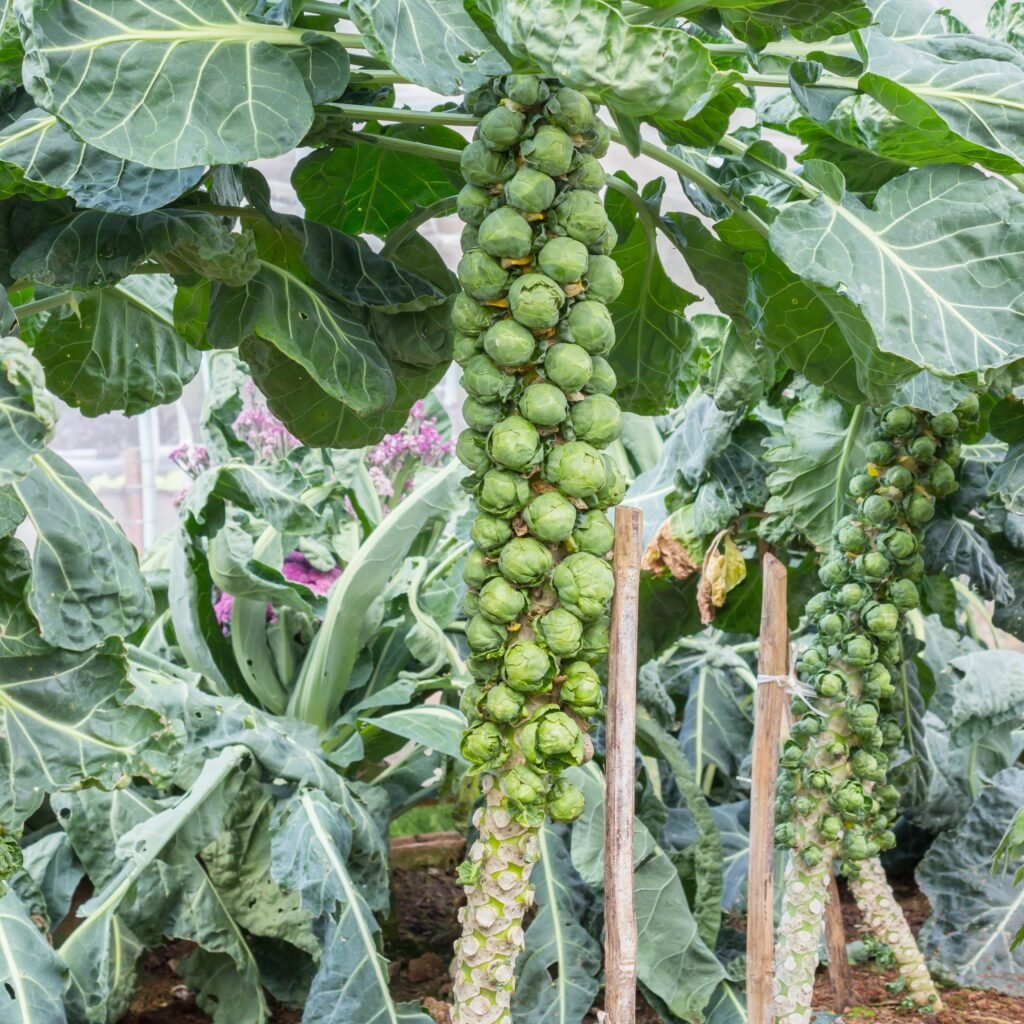
Here’s something you might not know: the reason Brussels sprouts taste better now than they did decades ago comes down to science.
In the 1990s, Dutch scientists identified the compounds responsible for the bitterness and selectively bred modern sprouts with lower glucosinolate levels — making them milder and naturally sweeter.
That’s why today’s Brussels sprouts are far more appealing, even to picky eaters.
Why You Should Eat More Brussels Sprouts
If you’re looking for one vegetable that offers maximum nutrition, versatility, and taste, Brussels sprouts check every box. They’re:
Rich in vitamins and minerals
Low in carbs and calories
Packed with fiber and antioxidants
Great for meal prep and side dishes
Whether roasted with maple glaze, shredded in salads, or tossed in your favorite pasta, Brussels sprouts bring both health and flavor to your plate.
Conclusion: Small Veggie, Big Benefits
Once misunderstood, Brussels sprouts have finally earned their rightful place in America’s kitchens. These tiny cabbages prove that healthy food can be delicious, satisfying, and full of character.
So next time you’re shopping for fresh produce, grab a bag (or better yet, a full stalk) of Brussels sprouts. Roast them, toss them, or grill them — and rediscover what this green powerhouse can do.
With every bite, you’ll taste not just flavor but the vibrant energy of nature’s nutrition-packed gift to your table.
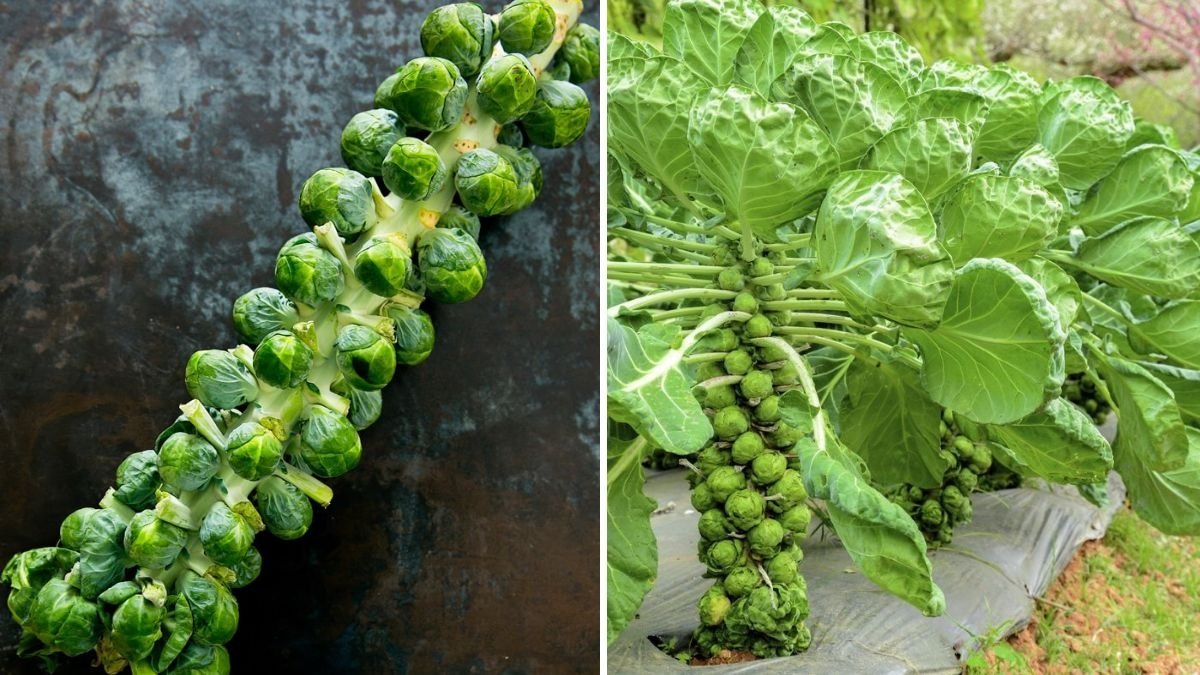





Leave A Comment